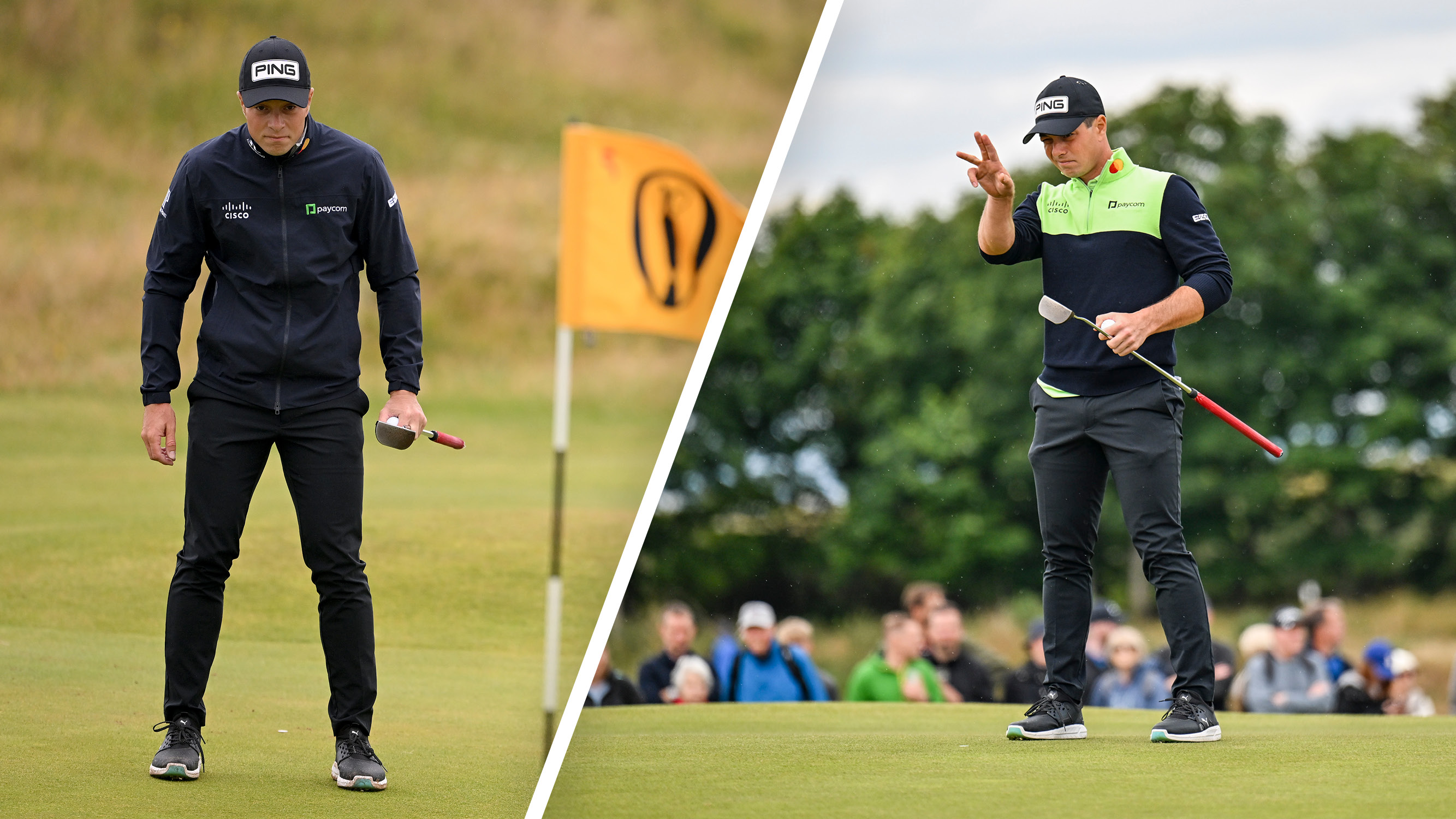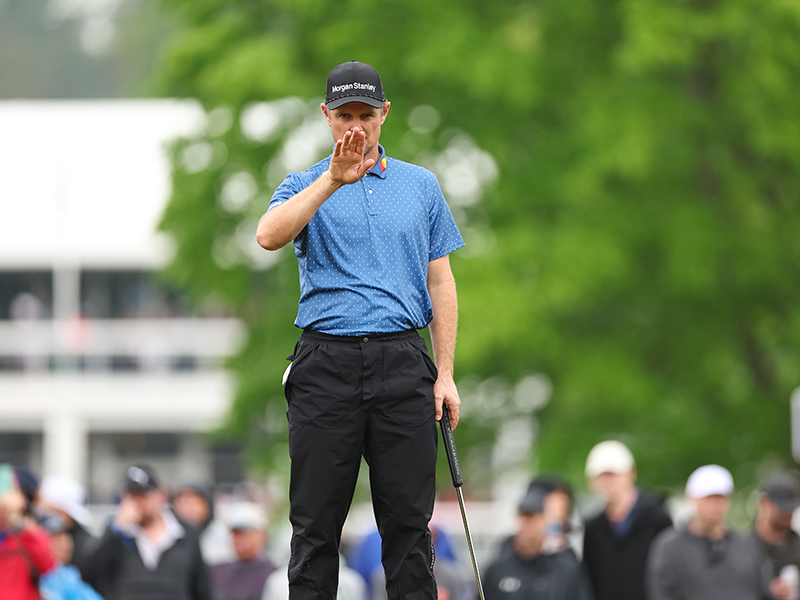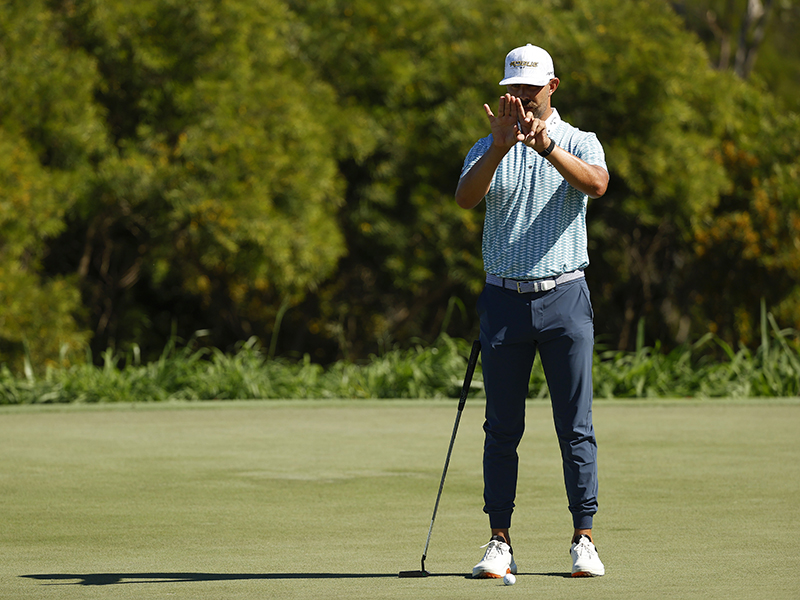
You might have heard of AimPoint through watching televised golf coverage, or witnessed your playing partner trying it out on the greens at your club, but what exactly is it?
The popular green reading method is commonly used at the highest level of the professional game, and is also used by amateur golfers all over the world. In fact, according to Europe's Senior AimPoint Instructor, Jamie Donaldson, the system is now used by 65 percent of players on the PGA Tour.
So, with a fact-finding mission in mind, I travelled down to Woburn Golf Club to meet Jamie, and asked him to answer a few questions about this increasingly recognisable method...
Where Did AimPoint Come From?
Firstly, it's important to differentiate between AimPoint and AimPoint Express.
AimPoint is a computer program that Mark Sweeney developed in 2003. The purpose of this programme was to read putts and provide TV companies with guidance on where to put the dotted line graphic (signalling the correct read) on the screen before the player putts.
The data gained from the computer programme paved the way for AimCharts, which were used by many of the top players in the world - including Stacy Lewis as she ascended to World No.1.
AimPoint Express was created much later, and is the method of reading greens which many professional and amateur golfers use today. Interestingly, however, the system was not initially designed with tour players in mind.
In around 2014, we were inventing a read method for kids using no materials. We decided to test it with two PGA Tour players, one of which won. Adam Scott picked it up from one of those players, shot 62 at the Bay Hill Invitational using it, and then decided to learn it properly. He then won the Honda Classic and became World No.1.
We made the decision to launch what is now called 'The Express Read'. When we measured players using the method, we found it was around 10 seconds per read on average. The Express Read is now used by 65 percent of players on the PGA Tour, but it was initially designed for kids.

What Is AimPoint And How Does It Work?
AimPoint Express is a way of predicting where to aim when putting. There's a lot of optical illusions on putting greens, and from testing thousands and thousands of golfers of varying abilities, people see about 50 percent of the correct aim line.
So, if we were to do an aim test with a subsection of golfers, and there's two-foot of break, they'd all be happy aiming at about one-foot. Visually, everyone under-reads putts by around 50 percent. So, AimPoint enables players to quickly learn where to aim by feeling slopes.
The ball breaks differently across different values of slopes, so we teach people to measure that and then use it to read a putt. So, simply, it's a system of knowing where to aim.
What Are The Benefits Of Using AimPoint?
Club level golfers all under-read, which means they've got to push or pull putts to get them on the correct line. Worse than that, they have to change their speeds, because if they under-read, they've got to smash the putt.
A lot of speed issues we see with players are because they're having to alternate it to try and get the ball near.
Also, looking at the physics of over-reading, if we over-read a putt by a foot, it'll miss by six inches, which would be a good miss. If we under-read by a foot, it's going to miss by up to four-feet below the hole. If we're trying to miss the putt close, an over-read is always the best strategy and helps to take three-putts out of the equation.

What Are Some Of The Common Misconceptions Regarding AimPoint?
The most common one is 'it takes too long'. I think that might be a little hangover from the chart read, perhaps when people were learning to use the chart. But, when we test reads of any level of golfer, 10 seconds is the average.
If you were to go behind the hole to read your putt, you're already taking up to two thirds longer than any AimPoint read, as you never walk more than two-thirds of the length of the hole to take your reads.
Secondly, some say 'it's too technical'. We designed it for kids learning to read greens, so it cannot be simpler. We teach tour players and amateurs in the same way, with very strict guidelines to our clinic format to keep it very basic.
Another misconception is it's only for good players. If you can walk and stay upright, you can use AimPoint. One of your body's main functions, apart from breathing, is to stay upright and not fall over. You're feeling the slopes and changing your body posture to walk, and we tap into that and use it to teach green reading. If you can walk in a straight line, you can use AimPoint.







